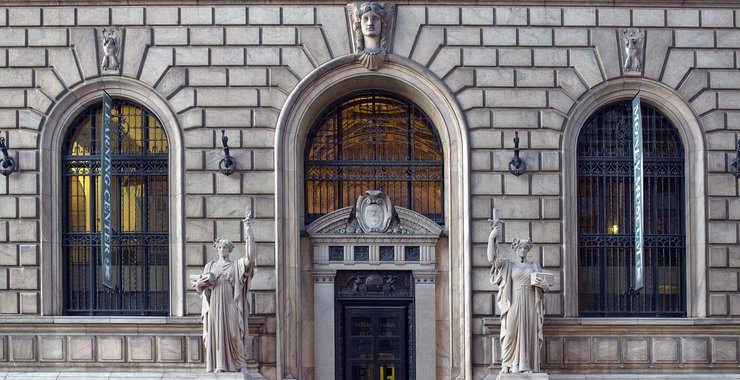The Federal Reserve System, an independent central banking system of the US, is currently looking into how to manage various “extraordinary” events – which could potentially have adverse effects on America’s traditional financial markets.
In an official policy document titled “Amendments to Policy Statement on the Scenario Design Framework for Stress Testing”, the Federal Reserve noted:
Several commenters strongly supported the inclusion of salient market risks in the scenarios in general to make the supervisory stress test sufficiently dynamic … Similarly, a commenter expressed support for the incorporation in the stress test of shocks unlike those already experienced … [and] that the Board consider extraordinary shocks, such as a war with North Korea, the collapse of the Bitcoin market, or major losses caused by trader misconduct, in its scenarios.
While the Federal Reserve may not be interested in launching its own cryptocurrency, the US Congress established “three key objectives for monetary policy in the Federal Reserve Act.” These include: “maximizing employment, stabilizing prices, and moderating long-term interest rates.”
Goldman Sachs: Bitcoin, Crypto Market Collapse Won’t Affect Traditional Markets
Moreover, the scope of the Federal Reserve’s responsibilities increased after the 2008-09 Wall Street Financial Crisis to include “supervising and regulating banks, maintaining the stability of the [US] financial system, and providing financial services to depository institutions, the U.S. government, and foreign official institutions.”
In August 2018, giant Wall Street investment bank Goldman Sachs released a report in which it noted that the collapse of the Bitcoin (BTC) and the larger cryptocurrency market would “not negatively impact the performance of the broader financial assets.” However, it now appears that centralized institutions are beginning to realize that the nascent crypto ecosystem could adversely affect the world’s multi-trillion dollar financial system.
WSJ: Bitcoin Strongly Correlated With Traditional Markets
While the potential collapse of the crypto market, which only has a market capitalization of around $130 billion, may not be an immediate threat, there could be a stronger correlation between the performance of digital assets and traditional financial markets (in the long-term).
In late December 2018, the Wall Street Journal (WSJ) published an article in which it argued that there’s now a strong correlation between traditional asset markets and bitcoin (BTC), the flagship cryptocurrency. In its report, the WSJ had referenced data from research firm Excalibur Pro Inc. – which revealed (at that time) that bitcoin had been trading at a 0.84 correlation to the gold bullion. A correlation value of 1.0, according to Excalibur, means there’s a “perfect correlation.”
Last year, bitcoin’s price was also heavily correlated with the performance of financial assets listed on the Chicago Board Options Exchange (Cboe) and other traditional markets.









